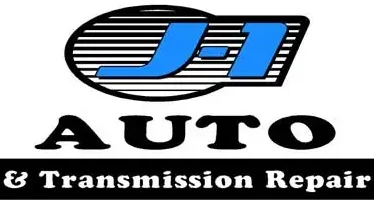
Understanding the Impact of Transmission Issues on Your Vehicle’s Fuel Efficiency
transmission maintenance automotive solutions gear shifting running smoothly auto body repair
Your vehicle’s transmission plays a critical role in how power is delivered from the engine to the wheels. When it functions smoothly, you experience a more responsive, efficient, and enjoyable drive. However, when the transmission begins to develop problems, it doesn’t just affect shifting — it can also negatively influence your car’s fuel efficiency. In this blog, we’ll explore the impact of transmission issues on fuel economy, how to recognize the signs, and what you can do to keep your vehicle performing at its best.
What Does the Transmission Do?
The transmission is responsible for adjusting the power generated by the engine to match the speed of the vehicle. In automatic transmissions, this happens seamlessly, while in manual ones, it requires driver input. Regardless of type, a well-functioning transmission ensures your engine doesn’t work harder than necessary. When the transmission starts to fail, it can cause strain on the engine, leading to higher fuel consumption.
The Impact of Transmission Issues on Fuel Efficiency
One of the biggest signs of transmission trouble is a sudden drop in fuel economy. The impact of transmission issues on fuel efficiency can be gradual or sudden, depending on the nature of the problem. Common problems such as slipping gears, delayed engagement, or rough shifting can cause the engine to rev higher than needed, wasting fuel in the process.
For example, if your transmission isn’t shifting properly, your engine might stay in a lower gear longer than it should. This increases engine RPM and fuel consumption. Similarly, if the transmission is slipping, the engine may need to work harder to deliver the same level of performance, burning more gas along the way.
Warning Signs of Transmission Problems
To understand the impact of transmission issues, it’s important to recognize early warning signs. These include:
Delayed or hard shifting
Unusual noises such as whining or clunking
Leaking transmission fluid (usually red or brown)
Burning smells while driving
Check engine light or transmission warning light
Poor acceleration or engine revving unusually high
Ignoring these signs not only increases the risk of a complete transmission failure but also leads to a steady decline in fuel efficiency.
Regular Maintenance Matters
Routine maintenance is essential to avoid transmission problems and preserve fuel economy. Here are a few maintenance tips:
Check Transmission Fluid Regularly: Low or dirty fluid can cause the transmission to overheat or perform poorly. This is one of the easiest ways to prevent fuel inefficiency caused by transmission wear.
Follow Manufacturer Guidelines: Always refer to your owner’s manual for the recommended service intervals. Some transmissions may require fluid changes every 30,000 to 60,000 miles.
Avoid Aggressive Driving: Sudden acceleration and high-speed driving can stress the transmission and lead to premature failure.
Get Inspections: If you notice even minor issues, have your transmission checked by a professional. Early detection minimizes the impact of transmission issues on fuel economy and repair costs.
Repair vs. Replacement
Sometimes, minor transmission issues can be resolved with a fluid change or software update. In more severe cases, internal repairs or a complete replacement may be necessary. While repairs can be costly, ignoring the problem will ultimately lead to more expensive consequences—not just in repair bills but also in higher fuel costs over time.
Before deciding, consult with a trusted mechanic to understand the severity of the issue. A full diagnosis will determine whether the transmission can be repaired or needs to be replaced entirely.
Improving Fuel Efficiency After Repairs
Once transmission issues are addressed, many drivers notice an immediate improvement in fuel economy. If the vehicle had been using more fuel due to slipping or poor shifting, restoring transmission performance can bring consumption back to optimal levels.
You can also boost fuel efficiency by adopting better driving habits:
Drive smoothly and avoid rapid acceleration
Use cruise control on highways to maintain steady speed
Keep your tires properly inflated
Avoid unnecessary idling
Final Thoughts
The impact of transmission issues on your vehicle’s fuel efficiency is significant but often overlooked. While many car owners focus on the engine or tires when trying to improve gas mileage, the transmission is just as crucial. From smooth gear changes to optimal power delivery, a healthy transmission is key to fuel efficiency.
If you’re experiencing symptoms like poor acceleration, strange noises, or increased fuel use, don’t delay. Have your vehicle inspected and address any transmission concerns early. By doing so, you’ll not only protect your vehicle’s performance but also save money at the pump in the long run.








